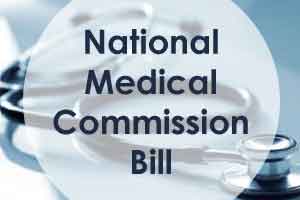- Home
- Medical news & Guidelines
- Anesthesiology
- Cardiology and CTVS
- Critical Care
- Dentistry
- Dermatology
- Diabetes and Endocrinology
- ENT
- Gastroenterology
- Medicine
- Nephrology
- Neurology
- Obstretics-Gynaecology
- Oncology
- Ophthalmology
- Orthopaedics
- Pediatrics-Neonatology
- Psychiatry
- Pulmonology
- Radiology
- Surgery
- Urology
- Laboratory Medicine
- Diet
- Nursing
- Paramedical
- Physiotherapy
- Health news
- Fact Check
- Bone Health Fact Check
- Brain Health Fact Check
- Cancer Related Fact Check
- Child Care Fact Check
- Dental and oral health fact check
- Diabetes and metabolic health fact check
- Diet and Nutrition Fact Check
- Eye and ENT Care Fact Check
- Fitness fact check
- Gut health fact check
- Heart health fact check
- Kidney health fact check
- Medical education fact check
- Men's health fact check
- Respiratory fact check
- Skin and hair care fact check
- Vaccine and Immunization fact check
- Women's health fact check
- AYUSH
- State News
- Andaman and Nicobar Islands
- Andhra Pradesh
- Arunachal Pradesh
- Assam
- Bihar
- Chandigarh
- Chattisgarh
- Dadra and Nagar Haveli
- Daman and Diu
- Delhi
- Goa
- Gujarat
- Haryana
- Himachal Pradesh
- Jammu & Kashmir
- Jharkhand
- Karnataka
- Kerala
- Ladakh
- Lakshadweep
- Madhya Pradesh
- Maharashtra
- Manipur
- Meghalaya
- Mizoram
- Nagaland
- Odisha
- Puducherry
- Punjab
- Rajasthan
- Sikkim
- Tamil Nadu
- Telangana
- Tripura
- Uttar Pradesh
- Uttrakhand
- West Bengal
- Medical Education
- Industry
AYUSH To MBBS Bridge course provision in NMC bill: Health Ministry Justifies Clause

New Delhi: A provision in the draft National Medical Commission Bill of a bridge course for AYUSH doctors to enable them to practice allopathy seeks to address the "acute shortage" of doctors in the country, the government has said.
The health ministry has put up on its website a section 'Frequently Asked Questions' about the bill, a move to address concerns of the medical fraternity about various provisions.The bill has been referred to a Parliamentary Standing Committee after it witnessed opposition regarding different provisions from the medical fraternity.
The ministry has also assured that the bridge course would not be unscientific and dangerous.
"NMC will be dominated by allopathic doctors. If all of them unanimously approve a bridge course after due consideration, then there is no reason to assume that it will be unscientific and dangerous."
The course would be designed in such a manner that it would enable the participants to prescribe a limited set of medicines in a responsible manner," the ministry said to a question whether the bridge course would be unscientific and dangerous.
It said the NMC bill seeks to fill in the gaps of availability of healthcare personnel by facilitating trained AYUSH practitioners to expand their skill sets through the bridge course and provide preventive and promotive allopathic care.
It also said with growing incidence of non-communicable diseases (NCD), there is a need to provide holistic prevention and treatment of diseases and AYUSH plays an effective role in integrating the preventive and promotive aspect of healthcare.
India has a doctor-population ratio of 1:1655 as compared with the WHO standards of 1:1000.In addition, city doctors are not willing to work in rural areas as can be seen in the urban-rural ratio of doctor density (3.8:1).
"There are 7,71,468 AYUSH practitioners in India who can be leveraged to improve the health access situation of the country," the health ministry said.
According to the document on the website, there is already a policy for co-locating AYUSH and allopathy to ensure better utilisation of resources.Further, with the government's target to revamp 1,50,000 sub-health centres into health and wellness centres, there is a need of the large human resource to meet this challenge.
Justifying its stand, the ministry said that countries such as Thailand, Mozambique, China and the US have regularised community health workers and non-allopathic health providers into mainstream health services, with improved health outcomes.
Further, it said that various states such as Maharashtra, Assam, Uttarakhand, Haryana, Karnataka and Uttar Pradesh among others have already amended their acts and permitted AYUSH professionals to practice modern systems and prescribe all modern medicines.
"We also need to take such kind of steps when we have an acute shortage of doctors and specialists. The NMC bill seeks to fill in the gaps of availability of healthcare personnel by facilitating trained AYUSH practitioners to expand their skill sets through a bridge course," the ministry explained.The bridge course may help address this demand and better utilisation of resources, and make the health sector a bigger provider of employment.
The NMC bill also promotes this through more exposure of such NCD patients to non-allopathic practitioners in addition to allopathic doctors."Thus, in order to homogenise and regulate the entry of AYUSH professionals towards practising modern medicine through a strict regime, this bill has provided for the clause."Any bridge course will be introduced only by a unanimous vote as provided in Section 49(4) and hence each one of the allopathic doctors in the NMC will have a veto power," it said.
"Even if the bridge course is introduced, it will only be for prescribing specified medicines at specified levels. The provision is intended for prescribing a small number of medicines including OTC drugs at the sub-centre/PHC level," it stated.
The provision to allow doctors pursuing Indian systems of medicine, including Ayurveda, and homoeopathy to practice allopathy after clearing a bridge course has drawn opposition from the doctors' community with Indian Medical Association sternly protesting it.
Medical Dialogues Bureau consists of a team of passionate medical/scientific writers, led by doctors and healthcare researchers. Our team efforts to bring you updated and timely news about the important happenings of the medical and healthcare sector. Our editorial team can be reached at editorial@medicaldialogues.in.


